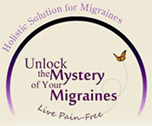





Hypothyroidism
https://www.youtube.com/watch?v=S-BR5IIc_aw
Lots of people with hypothyroidism (low thyroid function) are misdiagnosed. They experience various symptoms without realizing that they are a thyroid-related issue- yet you hear your doctor saying your thyroid was tested normal.
An estimated 27 million American have a thyroid disease, and more than half are undiagnosed. Frequently misunderstood, and too often overlooked and misdiagnosed. Thyroid disease affects almost every aspect of health, so understanding more about the thyroid, and the symptoms that occur can help you protect or regain good health. The vast majority is: Hypothyroid – under functioning, slow or sluggish thyroid.
Your thyroid is a gland. It’s located in the throat on your vocal cords. It has a shape of a butterfly. Your Thyroid is considered a master gland; it affects every cell in your body. It works as a thermostat because your body needs a constant level of heat to function properly and vigorously.
The thyroid controls how quickly the body uses energy, makes proteins, and controls how sensitive the body should be to other hormones.
The thyroid gland participates in these processes by producing thyroid hormones. These hormones regulate the rate of metabolism and affect the growth and rate of function of many other systems in the body.
Do you know that a morning headache or migraine is one symptom of low thyroid function (Hypothyroidism)?
Another symptom of low thyroid besides migraines is fatigue. The source of energy in our body comes from two glands: The Thyroid and the adrenal glands. The healthier these glands are, the better your energy level will be. The weaker they are the poorer your energy level will be. These two glands are called the energizing partners.
Have you ever felt stressed and tired along with a wired-sensation that won’t go away? This is the sign of adrenal malfunction that affects the thyroid function.
Thyroid Blood Tests
The most common test for thyroid function is the TSH (thyroid-stimulating hormone) test. The TSH measures a chemical sent by the pituitary gland in the brain, which relays orders to the thyroid gland about how much thyroid hormone the body needs at a given time. However, in many studies and medical experiences TSH is not the most accurate indicator of a thyroid problem.
The following panel of laboratory tests can give you the best reading:
- TSH — This is the BEST test. However, beware most all of the “normal” ranges are simply dead wrong. The ideal level for TSH is between 1 and 1.5 mIU/L (milli-international units per liter)
- Free T4 and Free T3. The normal level of free T4 is between 0.9 and 1.8 ng/dl (nanograms per deciliter). T3 should be between 240 and 450 pg/dl (picograms per deciliter).
- Thyroid antibodies, including thyroid peroxidase antibodies and anti-thyroglobulin antibodies. This measure helps determine if your body is attacking your thyroid, overreacting to its own tissues (i.e., autoimmune reactions). Physicians nearly always leave this test out.
- For more difficult casesTRH can be measured (thyroid releasing hormone) using the TRH stimulation test. TRH helps identify hypothyroidism that’s caused by inadequacy of the pituitary gland.
Sources/Adapted:
- Low thyroid function (Diet Cure book by Julia Ross, M.A.)
- The Eck Institute of Applied Nutrition and Bioenergetics, Ltd. The Healthview Newsletter
- http://articles.mercola.com/sites/articles/archive/2010/01/02/Many-Symptoms-Suggest-Sluggish-Thyroid.aspx
- http://thyroid.about.com/cs/basics_starthere/a/thyroid101.htm
- http://thyroid.about.com/cs/basics_starthere/a/thyroid101.htm
Disclaimer: Statements made are not intended to diagnose, treat, cure, or prevent any disease. It’s for educational information only. Any recommendations are not intended to replace the advice of your physician.


